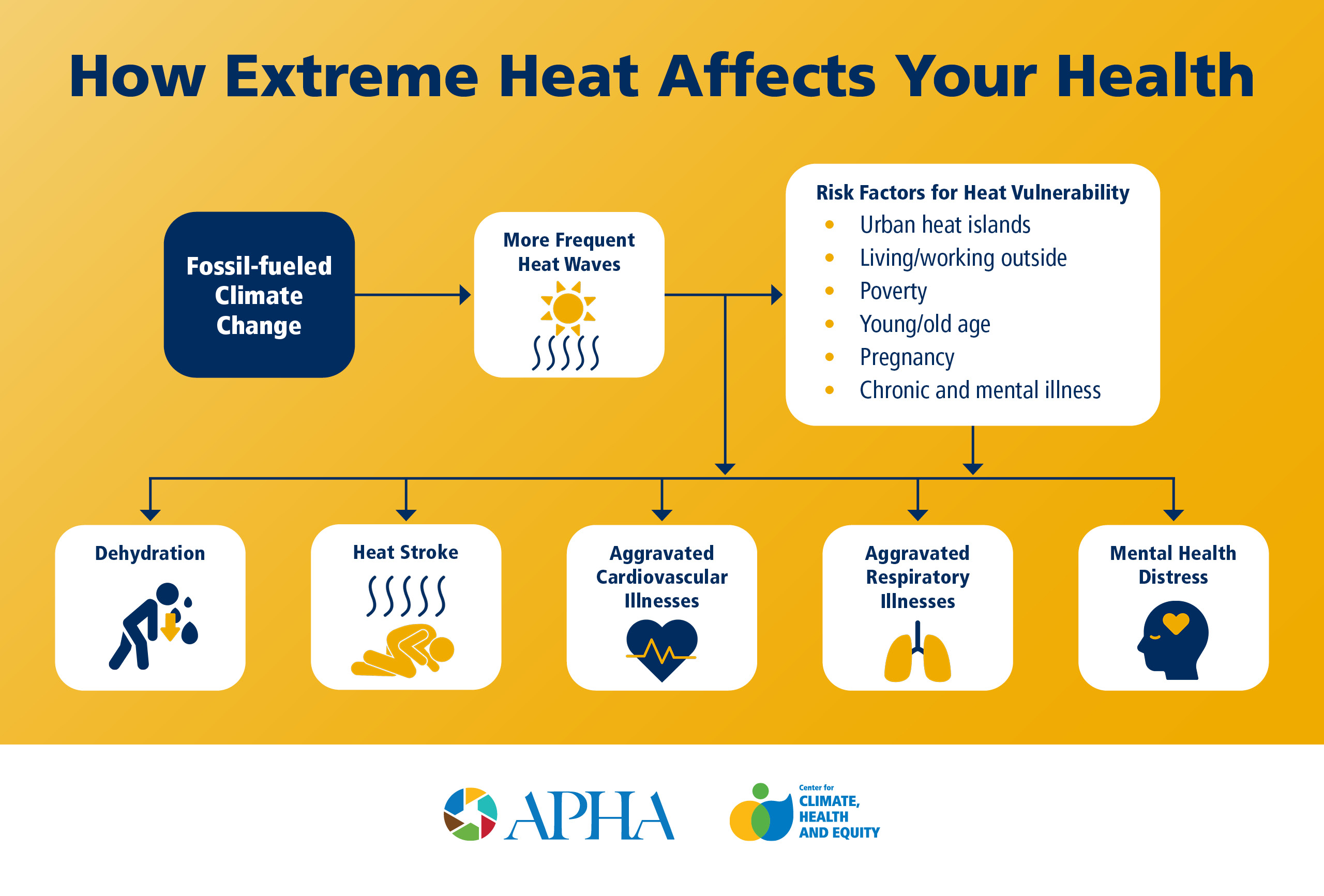Why is extreme heat a public health issue?
Extreme heat is one of the most dangerous climate-related threats we face. Here’s why it matters:
- 🧑⚕️ Extreme heat kills more people in the U.S. than all other weather-related disasters combined. And it’s getting worse each year due to rising temperatures and urban heat islands.
- 🌍 Fossil fuel-driven climate change is responsible for 37% of global heat-related deaths. Communities with fewer resources are hit hardest.
- 💸 Heat causes an estimated $100 billion in economic losses each year, primarily due to lost productivity. It also drives $1 billion annually in direct healthcare costs.
- 🏥 Each summer, heat leads to 235,000 ER visits and over 56,000 hospital admissions. Most of these are preventable with the right policies and preparedness.
- 🧾 Yet only 37% of Americans recognize heat waves as a serious health threat.- APHA/ EcoAMerica Survey
Extreme heat is a significant and escalating public health crisis in the U.S., claiming more lives annually than hurricanes, floods and tornadoes combined. This alarming trend is worsening due fossil fuel-driven climate change, which accounts for 37% of heat-related deaths worldwide.
The impacts of extreme heat are broad, straining infrastructure and disproportionately affecting vulnerable populations such as older adults, children, individuals with chronic illnesses, low-income communities, people experiencing homelessness, etc... In 2023 alone, extreme heat accounted for at least 2300 deaths in the United States, which many experts consider to be a significant underestimate. Furthermore, heat illness causes $1 billion in healthcare costs annually in the U.S., along with $100 billion total cost to the U.S. economy, primarily driven by lost productivity. With heat-related mortality projected to increase substantially due to climate change, it is imperative that health systems, public health agencies, and society at-large rapidly develop the policies and infrastructure necessary to build resilience against extreme heat.

There is a need for increased public awareness about the dangers of extreme heat and the importance of implementing preventative measures like investing in heat-resilient infrastructure and committing to policies that address the root causes of climate change.
Additional APHA Resources in Extreme Heat
For more information about our extreme heat and health work, contact Shweta Arya.





.jpg?language=en)





